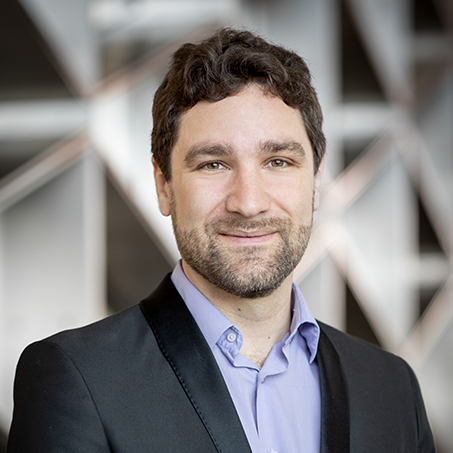
Raphaël Huser
Associate Professor, Statistics
Computer, Electrical and Mathematical Science and Engineering Division
Low-probability-high-impact events affect us, as a society, more than ever before. In the Extreme Statistics Research Group, we develop novel statistical methodology and machine learning methods to better model, infer, understand, and ultimately predict these extreme events in a wide range of applications ranging from climate and earth sciences, to finance, and neuroscience.
Program Affiliations
Biography
Raphaël Huser is an Associate Professor of Statistics and the principal investigator of the Extreme Statistics (XSTAT) research group. He is also affiliated with the Applied Mathematics and Computational Science (AMCS) Program.
Professor Huser received his Ph.D. in Statistics in 2013 from the Swiss Federal Institute of Technology, Switzerland, under the supervision of Professor Anthony C. Davison. He also holds a B.S. in Mathematics and an M.S. in Applied Mathematics from École polytechnique fédérale de Lausanne (EPFL), Switzerland.
After completing his Ph.D., Huser joined KAUST as a postdoctoral research fellow in January 2014. He was appointed Assistant Professor in March 2015 and promoted to Associate Professor of Statistics in 2022.
Research Interests
Raphaël Huser’s research primarily focuses on statistics of extreme events and risk assessment, including developing specialized statistical models with appealing statistical properties. Additionally, he studies efficient machine learning methods designed for massive datasets from complex spatio-temporal processes.
Huser’s novel methodological contributions are motivated and inspired by a wide variety of real data applications, which include the modeling of natural hazards in climate and earth sciences (e.g., heavy rainfall, heat waves, extreme sea surface temperatures, strong wind gusts, devastating landslides), the assessment of financial risk (e.g., turbulence in stock markets or cryptomarkets), and the characterization of brain signals during extreme stimuli (e.g., epileptic seizures).
Beyond creating new models with interesting statistical properties, one crucial aspect is fitting these complex models to big data. A critical area of Huser's current research is developing general-purpose, likelihood-free, fast and statistically efficient neural Bayes estimators. Being deeply anchored in statistical decision theory and relying on advanced deep-learning techniques, which makes them attractive both from a theoretical and a computational perspective, these estimators truly provide a paradigm shift challenging traditional statistical inference techniques for complex models with intractable likelihoods.
Huser, with collaborators, is contributing extensively to the early development of such estimators and their application to spatial (e.g., extreme) and multivariate models.
Education Profile
Postdoctoral Research Fellow, King Abdullah University of Science and Technology 2014-2015
Ph.D. Statistics, Swiss Federal Institute of Technology (EPFL), 2013
M.Sc. Applied Mathematics, Swiss Federal Institute of Technology (EPFL), 2009
B.Sc. Mathematics, Swiss Federal Institute of Technology (EPFL), 2007
Awards and Recognitions
Publications
Research Areas
Multimedia
- - ORCID
- - KAUST Repository
- - Scopus
- - Google Scholar
- - Publons

